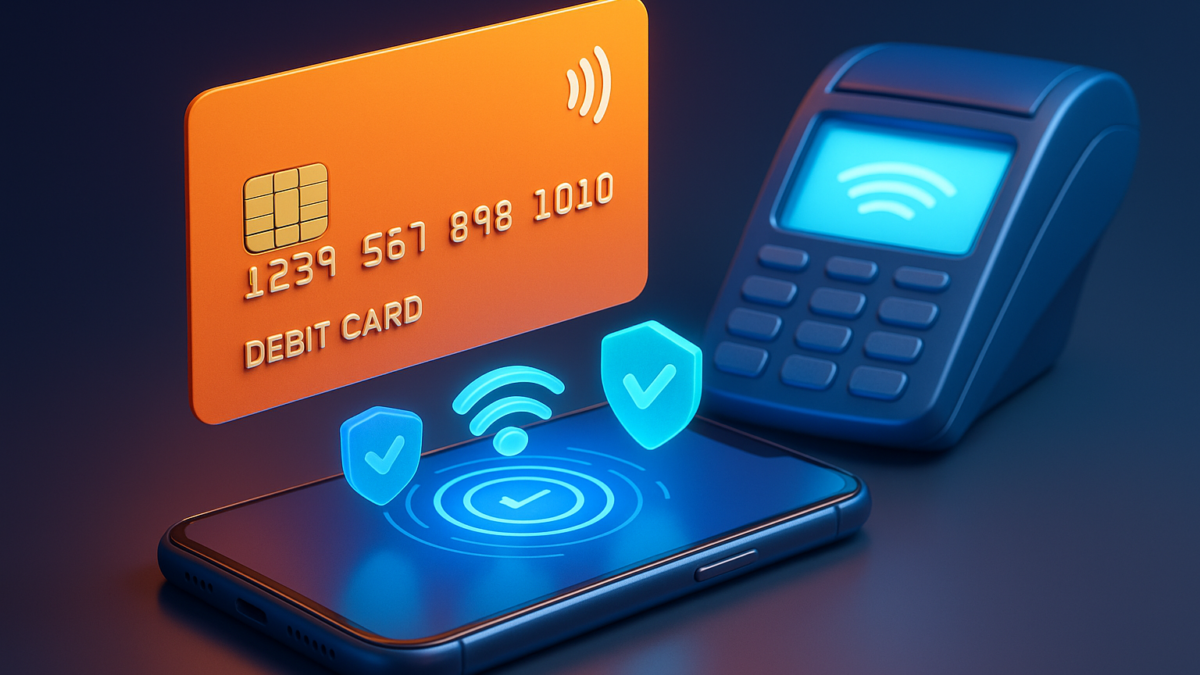The Future of Debit Cards in 2025: Innovation Meets Convenience
Debit cards have long been the bridge between cash and digital finance. But as FinTech innovation accelerates, the humble debit card is undergoing a massive transformation. What began as a simple tool for ATM withdrawals is now at the heart of contactless payments, mobile banking, and real-time financial management.
In 2025 and beyond, the future of debit cards will be defined by digital integration, enhanced security, and smarter financial ecosystems that empower consumers like never before.
1. From Plastic to Digital: The Rise of Virtual Debit Cards
The physical debit card is steadily giving way to its virtual counterpart. Banks and FinTech startups now issue instant virtual cards that live inside mobile wallets like Apple Pay, Google Pay, and Paytm.
Why It Matters:
- Instant issuance—no need to wait for physical delivery.
- Enhanced security with tokenized transactions.
- Seamless integration with digital platforms and e-commerce.
Example:
Neo-banks like Revolut and Monzo offer dynamic virtual debit cards that generate new numbers for each transaction—dramatically reducing fraud risk.
2. The Contactless Revolution
Contactless payment adoption has exploded since the pandemic. According to Mastercard, over 80% of global debit card transactions are now contactless.
What’s Driving It:
- Faster checkout times and reduced touchpoints.
- Integration with smartwatches, phones, and even biometric devices.
- Support for microtransactions and transit systems.
As near-field communication (NFC) and biometric verification mature, consumers can expect even smoother, safer contactless payments.
3. Smarter Security with AI and Blockchain
Security remains a top priority in the evolution of debit cards. The next generation of cards will leverage AI-driven fraud detection, behavioral analytics, and blockchain verification to secure transactions.
Future-ready features include:
- Real-time alerts for suspicious activity.
- Geolocation-based transaction approval.
- Encrypted identity management using decentralized ledgers.
Example:
Visa’s AI-based risk management system now analyzes over 500 risk factors per transaction, offering near-instant fraud prevention without disrupting the user experience.
4. Debit Cards Meet Rewards and Personalization
Credit cards have traditionally dominated the rewards game, but debit cards are catching up. Financial institutions are introducing cashback, crypto rewards, and personalized spending insights.
Examples of innovation:
- Crypto-linked debit cards let users spend Bitcoin or USDT like fiat currency.
- AI-driven apps categorize spending habits and suggest budget adjustments.
- Personalized offers from partnered merchants based on spending data.
This trend signals a shift from utility-based to experience-driven banking, where debit cards become a tool for both payment and financial growth.
5. Embedded Finance and Super Apps: The New Ecosystem
The future of debit cards lies not in the card itself, but in the ecosystem surrounding it. As embedded finance grows, debit cards will integrate directly into super apps like Paytm, Grab, and Revolut, offering users a one-stop platform for payments, savings, loans, and investments.
Impact on users and businesses:
- Seamless transactions within digital ecosystems.
- Unified dashboards for spending, budgeting, and rewards.
- Enhanced customer loyalty through ecosystem stickiness.
For businesses, this evolution opens new opportunities for branded debit cards, API-based payment solutions, and co-branded loyalty programs.
6. Sustainability and the Green Finance Movement
Environmental consciousness is also shaping the future of payments. Many banks are shifting to eco-friendly debit cards made from recycled plastic or metal, while digital-first banks eliminate physical cards altogether.
Example:
HSBC and Starling Bank have launched recycled PVC cards, while others offer “digital-only” options to reduce plastic waste.
Sustainability is now a core selling point for younger, eco-conscious consumers who want their financial choices to align with their values.
Future of Debit Cards by 2025: Emerging TechnologiesConclusion
The future of debit cards is smart, secure, and seamlessly digital. With advances in AI, blockchain, and embedded finance, debit cards are no longer just payment tools—they are intelligent financial companions.
As financial ecosystems evolve, debit cards will continue to bridge traditional banking and the digital future, giving consumers greater control, transparency, and convenience.
Call-to-Action (CTA)
Want to position your FinTech insights in front of global decision-makers?
Leverage iTMunch’s B2B Content Syndication Services to amplify your content, reach qualified leads, and drive measurable engagement.
See Also: Whitepapers vs eBooks: Which Drives Better ROI in 2025?





